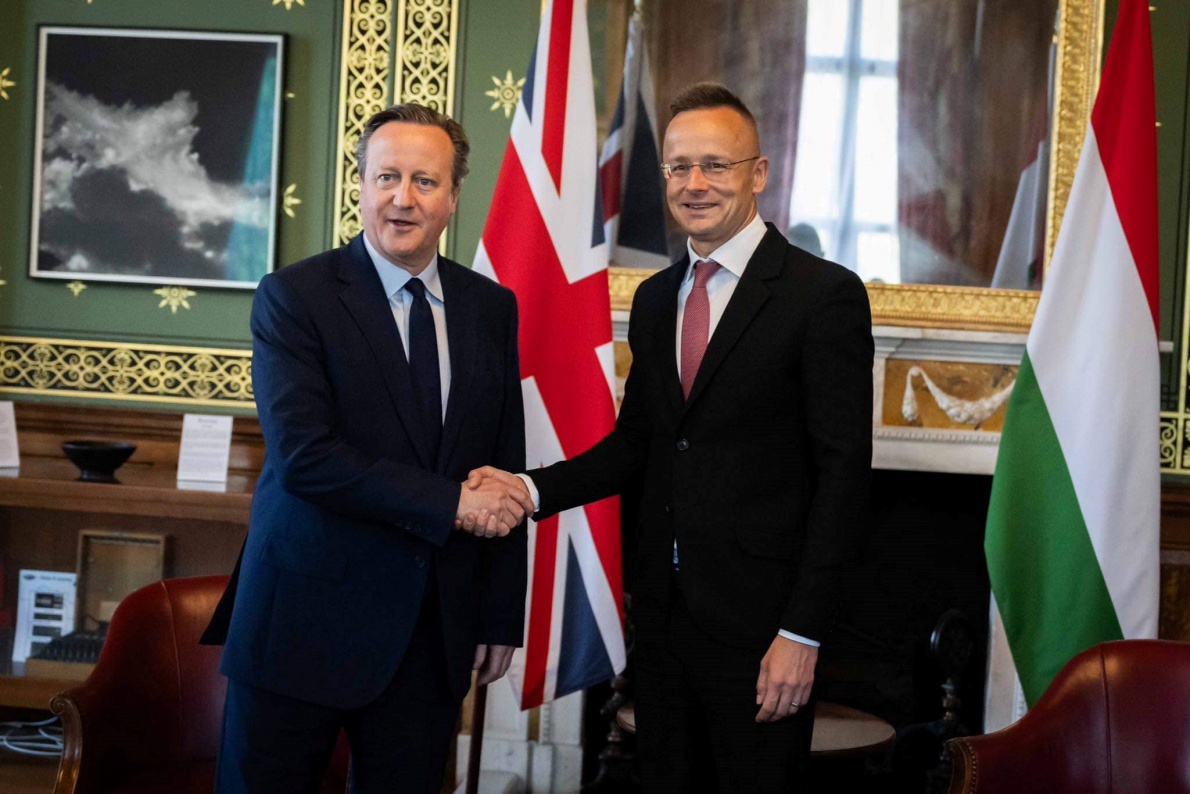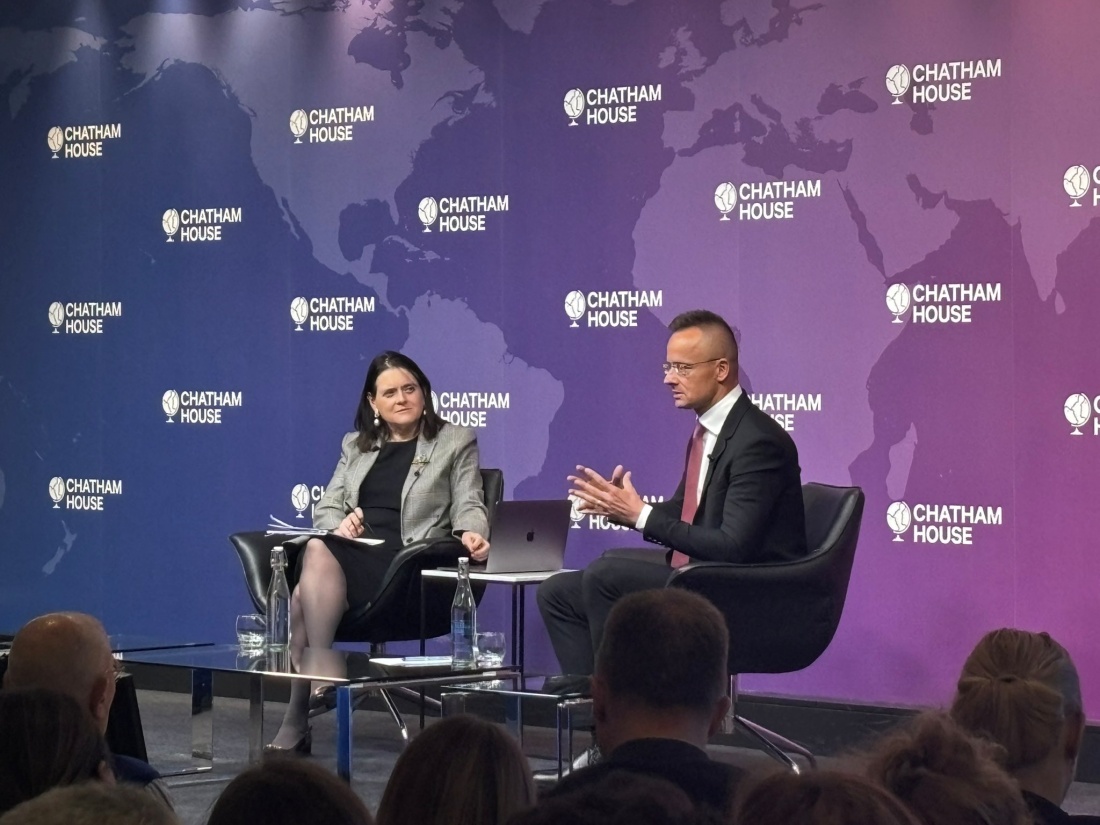
"We adamantly oppose funding such endeavors with Hungarian taxpayers' money," Péter Szijjártó said.Continue reading

The European Union is currently in worse shape than it was five years ago, with its security and competitiveness considerably deteriorating, emphasized Minister of Foreign Affairs and Trade Péter Szijjártó at an event organized by the Royal Institute of International Affairs in London.
Setting three priorities for the six-month period of the forthcoming EU presidency, Mr. Szijjártó first emphasized the need to promote the enlargement of the Western Balkans.
He highlighted the significant difference between peace and unrest in the region, stressing the urgency to advance the process.
The prolonged wait for the five candidate countries, averaging 14 years and 11 months, severely undermines the credibility of the enlargement policy. The second priority, he stated, was to combat illegal migration, citing Hungary’s prevention of over 200,000 illegal border crossings last year.
The Minister emphasized the importance of adhering to international law, stating that individuals fleeing war or persecution should seek refuge in the first safe country.
In discussing the third priority, improving the EU’s competitiveness, Szijjártó referenced China’s ascent to the second-largest economy globally, coupled with protectionist policies from Beijing and Washington.
Responding to inquiries, Péter Szijjártó highlighted the significant decline in the EU’s security and competitiveness over the past five years, expressing Hungary’s reluctance to support the re-election of current Brussels leadership.
Addressing criticisms of the Hungarian leadership, he attributed them to the discomfort of Brussels and the international liberal mainstream with Hungary’s successful right-wing government, diverging from the prevailing narrative.
He countered criticisms of Hungary’s situation, refuting claims of threats to press freedom and judiciary independence.
Minister Szijjártó expressed regret over the UK’s departure from the EU, citing the loss of a balanced voice in the debate between sovereignists and federalists.
Mr. Szijjártó affirmed Hungary’s opposition to federalist ideas, asserting that a strong Europe necessitates robust Member States. On Hungarian-Russian relations, he underscored the government’s intent to continue cooperation in areas unaffected by sanctions.
Yesterday, @ChathamHouse welcomed the Hungarian Minister of Foreign Affairs & Trade, Péter Szijjártó, who spoke with @bronwenmaddox on #Hungary‘s foreign policy objectives before assuming the Eur. Council presidency on Jul 1, 2024.
Watch the recording https://t.co/gu5s2BEoEa
— Chatham House Events (@CH_Events) May 9, 2024
Critiquing transatlantic hypocrisy, Minister Szijjártó pointed out discrepancies in dealing with Russia, particularly regarding Hungary’s nuclear fuel procurement compared to significant deals by accusers. He reiterated Hungary’s condemnation of the war in Ukraine, emphasizing the need for a diplomatic solution over battlefield interventions.
In conclusion, Szijjártó stressed the importance of addressing the EU’s current challenges with strategic priorities and coherent policies.
Via MTI; Featured Image: X / Chatham House Events